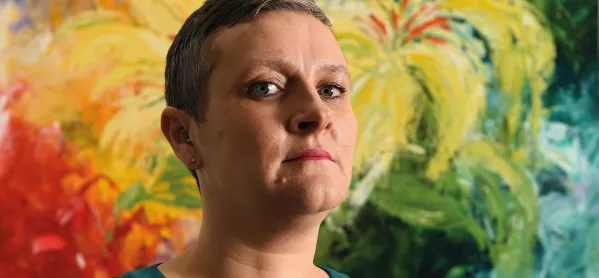- Home
- Gendered language is a barrier to women in school leadership
Gendered language is a barrier to women in school leadership

As a leader in girls’ schools, I am also particularly interested in how we develop the next generation of women and prepare them not only to take their place in society but also to lead that society. I’m also interested in how language is used to support - or damage - an individual or cause. I think that much of this use of language plays into a particular bugbear of mine: the stereotype of a leader.
Here, the language used to describe behaviours can, and does, I believe, have a detrimental effect on women when they are in the process of thinking themselves into whether they could succeed in a particular role.
In this situation, mentor schemes such as that established between Brightfield Consulting and the Girls Schools Association, where I used to be president, can help a great deal, by encouraging women to think about themselves as potential leaders and role modelling leadership, not just in education but outside of it too. In addition, those of us who are leaders can help to support the next generation through informal mentoring and the tap on the shoulder to encourage someone in the right direction.
An important part of our job is in helping others to see that words such as “drive” and “analytical” do apply to them and that no, they don’t have to spring into a role fully-formed. Women Ed’s 10% braver campaign was an inspired idea to support this type of work, because who can argue with being just a little bit braver, putting yourself out there just tad more, in order to progress? Looking at the comments on Twitter, we can see that this grassroots support is working.
There is a rather large caveat to this, however, and one where we have a much bigger and more deep-rooted problem. We can encourage, cajole and support women to make that step. We all agree that suitable women (and also BAME) applicants should be applying for - and securing - roles, but what happens when they finally get in front of a selection panel? Here, the gendered language and stereotypes about what it means to be a leader come into play with a vengeance.
Consider a panel interview where the applicant is challenged on a point of pedagogy or an aspect of their educational history that doesn’t quite meet requirements. Which applicant defends their point robustly, and which one is judged defensive? What about the candidate who has progressed up the career ladder with regular school moves, which led to more responsibility? Which one is judged ambitious, and who is the careerist?
I suspect it wouldn’t take too many guesses for you to work out which feedback has been given to me in the past. I have had my ability to deal with “tricky boys” questioned (I have three sons and have worked in all-boys’ schools) and asked countless times about childcare arrangements and what my partner does for a living and/or thinks about my application. I know many other women who can tell similar - or far worse - tales of the panel interview.
And what of that mythical quality of gravitas? A dictionary definition of the word is “dignity, seriousness or solemnity of manner” followed by the example of use “a man of gravitas”. I rarely hear women described as having gravitas (presence, yes, but not gravitas) but I have seen it outlined as a desirable trait in many job descriptions. Anyway, why does leadership have to be serious and solemn?
Caroline Criado-Perez’s recent book, Invisible Women, describes the bias shown in the language used to describe the ideal computer programmer, which makes it very difficult for women to fit the desirable characteristics listed in a job description. I firmly believe this happens in leadership roles too: the desire for, and reliance on, stereotypically male traits of leadership disproportionately prevents women and BAME leaders from accessing leadership positions as they should. A recent Harvard Business Review article by Tomas Chamorro-Premuzic puts it quite succinctly: “So long as we associate leadership with masculine features, we can expect female leaders to be evaluated more negatively even when their performance is higher”.
When faced with this unspoken bias and repeated knockbacks in applications, I think that many of our brightest and best give up. It’s hard to keep going when the feedback is repeatedly “we simply felt the other (guy) was a better fit to the job description” when you know that the descriptors used are ones which you can never meet.
So what can we as established leaders do about this? For one, we can keep shouting about it. We can force a discussion when we have the opportunity to influence the language used in a job description. We can, if in the position to do so, challenge the makeup of a selection panel. We can ask the person who sits back at the end of the interview and sighs “She was a bit defensive about X” to explain exactly what they mean. We can call out the panel members who slip in the question about a partner or question commitment to a role because of family circumstances. Most importantly, just by being our authentic selves and not wearing a mask of leadership, we can show the young people of tomorrow that successful leaders come with a wide range of qualities - and gravitas doesn’t have to be one of them.
Gwen Byrom is founding Principal of NLCS Bangkok and a former GSA president. She tweets as @onecoldtea
Keep reading for just £1 per month
You've reached your limit of free articles this month. Subscribe for £1 per month for three months and get:
- Unlimited access to all Tes magazine content
- Exclusive subscriber-only stories
- Award-winning email newsletters


